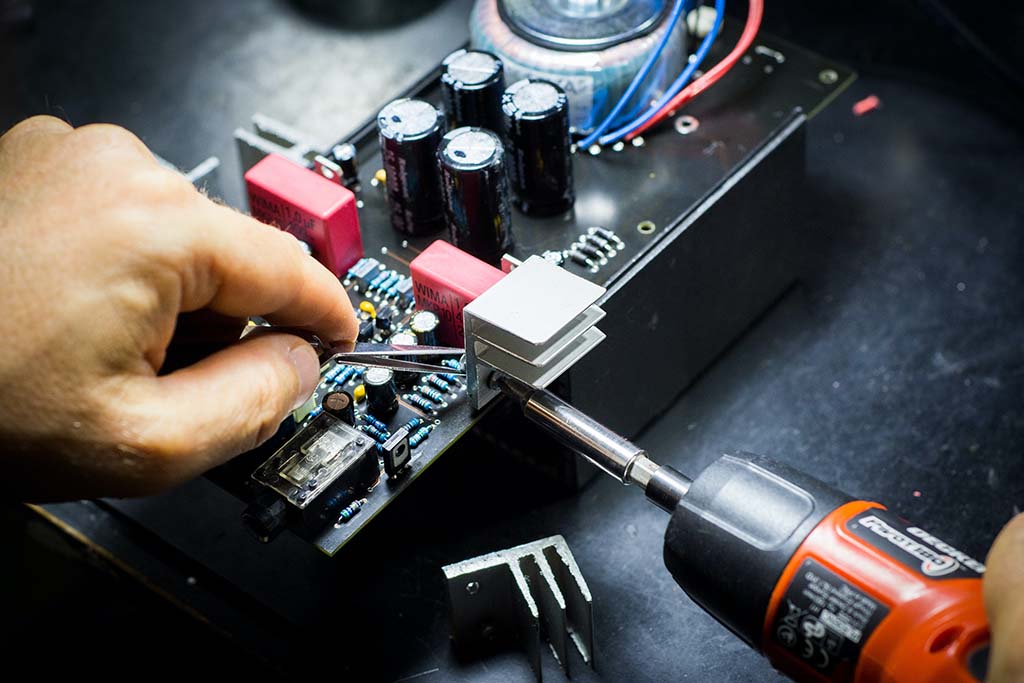Electronic Engineering Technology Overview
With the AAS degree in Electronic Engineering Technology from Rhodes State, students are provided a theoretical base in engineering principles, mathematics and physics, along with practical hands‑on experience in the laboratory. The core courses begin by analyzing basic series and parallel DC and AC circuits and progress through amplifiers and integrated circuits. Additional courses include digital logic circuits, microcontrollers, and programmable logic controllers. Along the way, students learn to build and troubleshoot electronic circuits of their own. The overall aim of the curriculum is to teach the hardware and software programming design and implementation of electronic equipment as well as the development of software needed for programming it.
Scholarship Opportunity
Rhodes State has been awarded a Choose Ohio First (COF) Scholarship grant by the Ohio Department of Higher Education. The grant provides scholarships to students majoring in disciplines that significantly strengthen Ohio’s competitiveness in Science, Technology, Engineering, Math, and Medicine (STEMM) education and industry.
Highlights
Students in this program come from various local industries including Ford Motor Company, Dana Corporation, and Grob Systems Inc.
Program Educational Objectives
Electronic Engineering Technology graduates will be able to perform a wide variety of tasks relating to Electronic Engineering Technology including:
- Demonstrate the ability to employ effective written, oral and visual communication in a technical environment by collecting, analyzing, and summarizing information and trends.
- Demonstrate an appreciation for the benefits that cultural diversity brings to a multidisciplinary team.
- Write programs to operate sophisticated machinery.
- Diagnose problems and provide correct, effective solutions.
- Apply their growing set of skills to creatively solve technical problems.
Student Learning Outcomes
- an ability to apply knowledge, techniques, skills and modern tools of mathematics, science, engineering, and technology to solve well-defined engineering problems appropriate to the discipline;
- an ability to design solutions for well-defined technical problems and assist with the engineering design of systems, components, or processes appropriate to the discipline;
- an ability to apply written, oral, and graphical communication in well-defined technical and non-technical environments; and an ability to identify and use appropriate technical literature
- an ability to conduct standard tests, measurements, and experiments and to analyze and interpret the results; and
- an ability to function effectively as a member of a technical team.
PROGRAM ENROLLMENT AND DEGREE DATA 2021-2022
Plan of Study
Career Opportunities
additional info about the career

